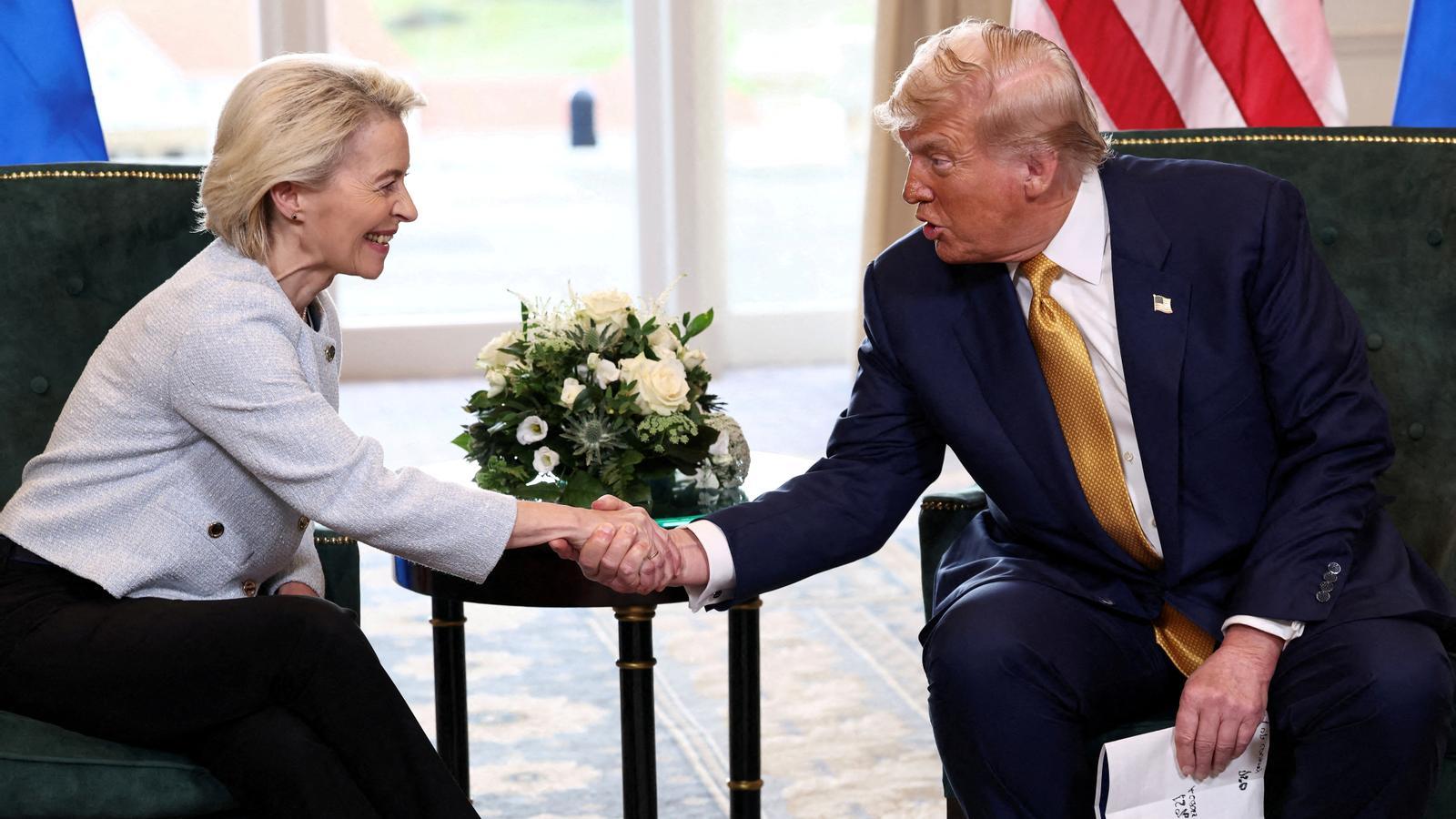European confusion the day after the tariff agreement


"It is a dark day when an alliance of free peoples, gathered to affirm their values and defend their interests, decides to submit." This phrase from French Prime Minister François Bayrou is the best example of the bewilderment with which it has been received in the European chancelleries as among EU economic actors, the tariff agreement with the United States announced this Sunday in Scotland by Donald Trump and the President of the European Commission, Ursula von der Leyen. The agreement is undoubtedly unbalanced. While the specific details are still unknown, it is based on a base tariff of 15% for all European exports to the United States, while the reverse remains unchanged, that is, with surcharges of between 1% and 2%.
What was sold on Sunday as an exercise in realpolitik and pragmatism on the part of Von der Leyen –"It is the best we can agree on"–, this Monday has been seen as a capitulation to the United States This could have very negative consequences. The situation is unprecedented because Brussels, led by Commissioner Maros Sefcovic, has been negotiating intensively for three months, and a few weeks ago it was leaked that the agreement could be set at around 15% tariffs. If Paris or Berlin weren't clear about this, they should have spoken out then, not now, because then it seems they want to shrug off any responsibility for an unpopular agreement and shift the focus onto Von der Leyen and her team.
The strangest criticism of the agreement comes from the German industrial sector, as Chancellor Frederic Merz, unlike Macron, had pushed for an agreement to be reached now, even if it wasn't ideal, so as not to jeopardize such strategic sectors as the automotive industry. But if neither German industrialists nor the main European governments agree with what was signed, what's the point of such a pact?
Be that as it may, this European discontent could end up short-circuiting the agreement, as at this point it's not even clear what the procedure for ratifying it should be. If it has to go through the European Parliament, it's a slim task after hearing the spokespersons of the political groups. And if it has to be ratified in each of the state parliaments, it will be even more difficult. The point is that the European Union is reaching a crucial moment in its recent history, where it must decide whether to stand up to Washington and bear the consequences of a trade war, or to bow to Trump's wishes to avoid harm and buy time, with no clear leadership, internal divisions, and a Commission under scrutiny.
This matter is important enough to call for a European Council of heads of state and government in which everyone speaks clearly and lays out their position. The argument that this is the best possible deal And that will bring stability, as Von der Leyen said, is painful to defend when dealing with someone like Donald Trump, who bases his entire strategy on permanent blackmail.
